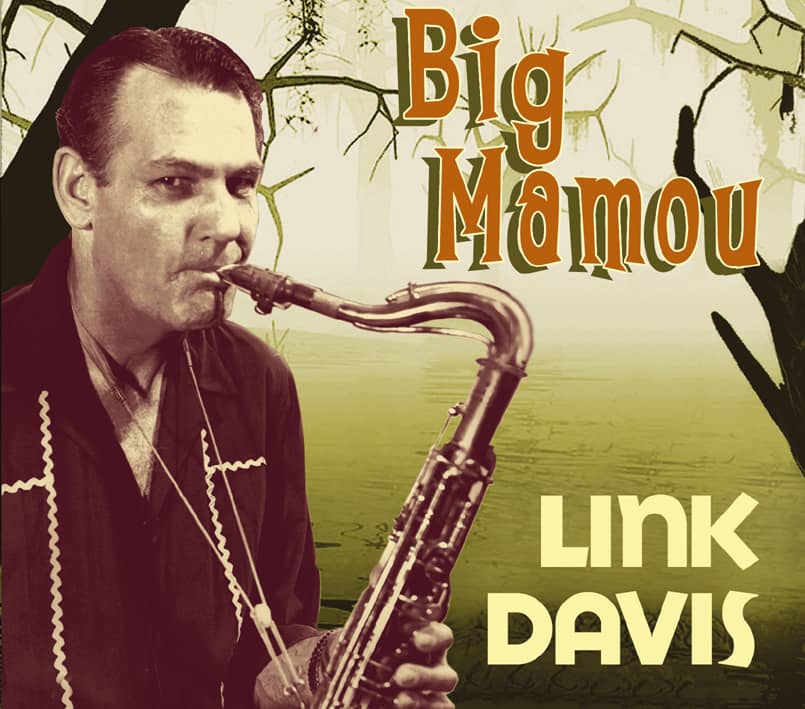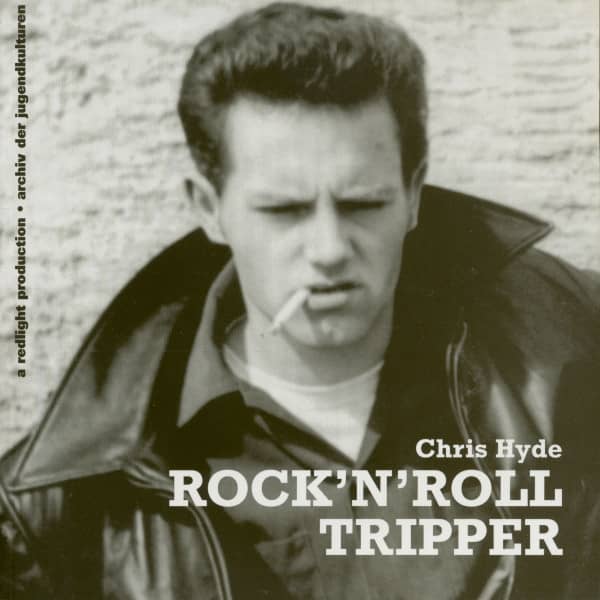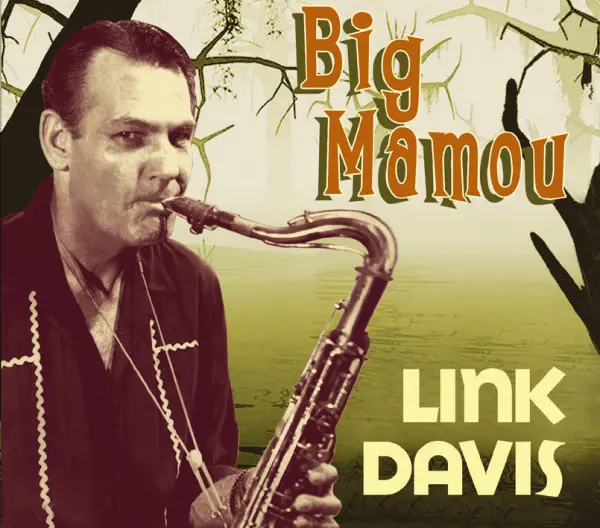Link Davis Gumbo Ya Ya - The Best Of 1948-58 (CD)
* incl. VAT / plus shipping costsDepending on the country of delivery, the VAT at checkout may vary.
the very last 2 available
Ready to ship today,
delivery time** appr. 1-3 workdays
- catalog number:CDREV252
- weight in Kg 0.1
Link Davis: Gumbo Ya Ya - The Best Of 1948-58 (CD)
Article properties:Link Davis: Gumbo Ya Ya - The Best Of 1948-58 (CD)
Interpret: Link Davis
Album titlle: Gumbo Ya Ya - The Best Of 1948-58 (CD)
Label REV OLA
Genre Cajun & Zydeco
Artikelart CD
EAN: 5013929455221
- weight in Kg 0.1
| Davis, Link - Gumbo Ya Ya - The Best Of 1948-58 (CD) CD 1 | ||||
|---|---|---|---|---|
| 01 | Big Mamou | Link Davis | ||
| 02 | Pretty Little Dedon | Link Davis | ||
| 03 | Lonely Heart | Link Davis | ||
| 04 | Time Will Tell | Link Davis | ||
| 05 | Mamou Waltz | Link Davis | ||
| 06 | Hey, Garcon! | Link Davis | ||
| 07 | Falling For You | Link Davis | ||
| 08 | Gumbo Ya-Ya (Everybody Talks At Once) | Link Davis | ||
| 09 | Crawfish Crawl | Link Davis | ||
| 10 | You're Little But You're Cute | Link Davis | ||
| 11 | Mama Say No | Link Davis | ||
| 12 | You Show Up Missing | Link Davis | ||
| 13 | Every Time I Pass Your Door | Link Davis | ||
| 14 | Cajun Love | Link Davis | ||
| 15 | Kajalena | Link Davis | ||
| 16 | Va T'Cacher (Go Hide Yourself) | Link Davis | ||
| 17 | Joe Turner | Link Davis | ||
| 18 | Have You Heard The News | Link Davis | ||
| 19 | Grasshopper | Link Davis | ||
| 20 | Sixteen Chicks | Link Davis | ||
| 21 | Grasshopper Rock | Link Davis | ||
| 22 | Trucker From Tennessee | Link Davis | ||
| 23 | Don't Big Shot Me | Link Davis | ||
| 24 | Cockroach | Link Davis | ||
| 25 | Slippin' And Slidin' Sometimes | Link Davis | ||
| 26 | Bon-Ton-Ru-La (Let The Good Times Roll) | Link Davis | ||
| 27 | Rice & Gravy Blues | Link Davis | ||
| 28 | You Played Around | Link Davis | ||
| 29 | Rice & Gravy Boogie | Link Davis | ||
| 30 | San Antonio Blues | Link Davis | ||
Link Davis
Big Mamou
I f the Fifties in America are remembered as a decade of remarkable transformations in popular music, the multiple rebirths of Texan fiddler-saxophonist Link Davis during those turbulent ten years must qualify him for special study. National recognition eluded him, and posterity has not been especially kind to him, but a closer look at his career forces us to consider him in a different light than nearly all of his peers. He began the Fifties as a forward-looking white R&B singer and saxophonist, recording a storming version of Good Rockin' Tonight five years before Elvis Presley's supposedly ground-breaking attempt at the same song. Davis then morphed into a Cajun fiddler, scoring a big regional hit with the ancient-sounding waltz Big Mamou, which (along with Jole Blon a few years earlier) helped introduce America to Cajun music. By mid-decade, when rock 'n' roll came along and forced most of his country music friends into early retirement, Link instead re-emerged as a born-again rocker, cutting some of his most memorable records: Don't Big Shot Me, Trucker From Tennessee, and Sixteen Chicks.
f the Fifties in America are remembered as a decade of remarkable transformations in popular music, the multiple rebirths of Texan fiddler-saxophonist Link Davis during those turbulent ten years must qualify him for special study. National recognition eluded him, and posterity has not been especially kind to him, but a closer look at his career forces us to consider him in a different light than nearly all of his peers. He began the Fifties as a forward-looking white R&B singer and saxophonist, recording a storming version of Good Rockin' Tonight five years before Elvis Presley's supposedly ground-breaking attempt at the same song. Davis then morphed into a Cajun fiddler, scoring a big regional hit with the ancient-sounding waltz Big Mamou, which (along with Jole Blon a few years earlier) helped introduce America to Cajun music. By mid-decade, when rock 'n' roll came along and forced most of his country music friends into early retirement, Link instead re-emerged as a born-again rocker, cutting some of his most memorable records: Don't Big Shot Me, Trucker From Tennessee, and Sixteen Chicks.
Versatility and adaptability: these words have been employed endlessly by music journalists over the years to try and describe Link Davis. Yet it was not simply a matter of Davis adapting to whatever was popular at the time: great numbers of his peers tried to do the exact same thing, and nearly all of them failed. Badly. What made Link so different? It was partially his environment: Audiences along the Texas/Louisiana Gulf Coast encouraged men like Link to play a musical gumbo and work with different genres of music, as long as they were danceable. It was also partially out of necessity: Davis found his calling as a professional musician early in life, and there was no chance of him ever working some square day job. He had to change with the times, or die trying. But the difference was largely explained just by who Link Davis was – an irascible character who loved drinking, smoking, and having a good time the best way he knew how: playing music.
Most of what has been written about Davis singles out his facility with two wildly different instruments – fiddle and tenor sax – but it is his voice that ultimately separates him from his contemporaries. It was not a country voice, emerging out of the bottom of his raspy throat and gut rather than through his nose. There is an almost breathless urgency to a lot of what Link sings, a phrasing style more patterned after blues shouters like Big Joe Turner or Wynonie Harris (who undoubtedly influenced him) than country or pop singers. It was a voice weak at country ballads, but a slow, bluesy number (like Lonely Heart) could draw out the best of what he had. "If I could put him in one class that was his favorite, it probably would be blues,"his friend and bandmate Clyde Brewer says."That would be his number one thing."
 Versatility aside, the broad view of Davis's career invites some frustrating questions. Why did it take him so long to become established as a bandleader? Although he had led his own bands as early as the late 1930s, he didn't permanently establish himself as a leader until he was almost 40 years old, seemingly content to work as a sideman for most of his early career. This relative anonymity may be one factor why the major record labels – who recorded nearly all of Link's peers in East Texas during the pre-war years – almost completely ignored him during the same period. It was only in 1947 that Link began to be regularly recorded, and even then, it was for the new, barely functional independent label, Imperial.
Versatility aside, the broad view of Davis's career invites some frustrating questions. Why did it take him so long to become established as a bandleader? Although he had led his own bands as early as the late 1930s, he didn't permanently establish himself as a leader until he was almost 40 years old, seemingly content to work as a sideman for most of his early career. This relative anonymity may be one factor why the major record labels – who recorded nearly all of Link's peers in East Texas during the pre-war years – almost completely ignored him during the same period. It was only in 1947 that Link began to be regularly recorded, and even then, it was for the new, barely functional independent label, Imperial.
By any measure, Link Davis should have been as famous as his friends Moon Mullican, Floyd Tillman, and Cliff Bruner. Perhaps his versatility worked against him early in his career as much as it worked for him in later years; sideman status aside, he might have been too unconventional to the world outside East Texas in those early days to attract a major record company. And while Davis's talents were later recognized by a few famous producers – Don Law and 'Pappy' Daily among them – they also stifled and limited him, and none of them ever found the magic formula that could deliver Link a national hit.
The final frustration of his stroke and subsequent death in 1972 was that it robbed Link of the attention he would have undoubtedly received had he lived a few years longer, when a revival of western swing and rockabilly, and wider recognition of the music's pioneers, began to seep into European and American consciousness. He had arrived too late as a bandleader; as a pioneer he had now left too soon.
Bear Family Records collects all of Link Davis's OKeh/Columbia (1952-1954) and Starday (1956-57) recordings together here for the first time, presented in their best sound quality ever. With the exception of Big Mamou, none of these records sold well when new, yet their irrepressible quality ensured that they would not be forgotten. Nor would their creator.
Wills Point
Although he will forever be associated with the Texas Gulf Coast, Lewis Lincoln Davis's origins lie 400 miles to the north, in Sunset, Montague County, Texas, northwest of Fort Worth, and just below the Oklahoma border. He was born there on July 8, 1914, one of eight musical children sired by William and Betty Davis. Some years after this, the family packed up and moved east of Dallas, to the small community of Wills Point (the place traditionally but erroneously cited as Link's place of birth), and it was on a sharecropping farm there that Link spent his formative years. His childhood evolution was typical of the professional string band musician of his generation: the fiddling father, the family band, the house parties, and the inevitable abandonment of farm life for the riskier but far more exciting world of the urban musician.
Link Davis Big Mamou
Read more at: https://www.bear-family.com/davis-link-big-mamou.html
Copyright © Bear Family Records

Ready to ship today, delivery time** appr. 1-3 workdays

Ready to ship today, delivery time** appr. 1-3 workdays

Ready to ship today, delivery time** appr. 1-3 workdays

the very last 1 available
Ready to ship today, delivery time** appr. 1-3 workdays

Ready to ship today, delivery time** appr. 1-3 workdays

only 2x still available
Ready to ship today, delivery time** appr. 1-3 workdays

Ready to ship today, delivery time** appr. 1-3 workdays

Ready to ship today, delivery time** appr. 1-3 workdays

only 2x still available
Ready to ship today, delivery time** appr. 1-3 workdays

only 1x still available
Ready to ship today, delivery time** appr. 1-3 workdays

Ready to ship today, delivery time** appr. 1-3 workdays

Ready to ship today, delivery time** appr. 1-3 workdays

Ready to ship today, delivery time** appr. 1-3 workdays

Ready to ship today, delivery time** appr. 1-3 workdays





